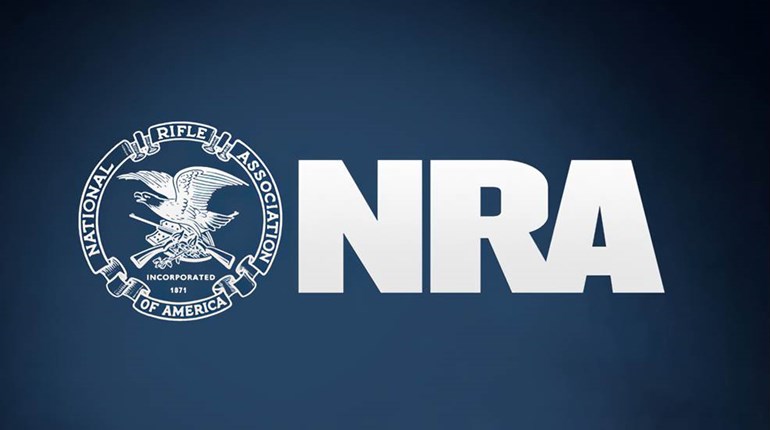
This feature appears in the April ‘17 issue of NRA America’s 1st Freedom, one of the official journals of the National Rifle Association.
“The Second Amendment protects an individual’s right to own firearms and may not be infringed lightly.” So wrote Supreme Court nominee Neil Gorsuch, who would be a worthy successor of the late Justice Antonin Scalia, who passed away last February.
Gorsuch currently serves on the 10th Circuit Court of Appeals. Based in Denver, it is the federal appeals court for Colorado, Wyoming, Kansas, Utah, New Mexico and Oklahoma. Gorsuch was nominated for the 10th Circuit by President George W. Bush in 2006, and he was unanimously confirmed by the Senate. A Denver native, he earned his law degrees from Harvard and Oxford.
Of the national gun-ban groups, the first to speak out against him was the Coalition to Stop Gun Violence. Executive Director Josh Horwitz stated: “While there is no paper trail of where Judge Gorsuch stands on guns, his selection by the NRA-backed Trump/Bannon White House certainly gives us a hint. If Gorsuch shares the NRA’s toxic ideology, he is already at odds with the overwhelming majority of Americans.”
Horwitz is not much of a detective, since Gorsuch’s paper trail can be found on the 10th Circuit’s website.
Since then, other gun-ban groups have also attacked Gorsuch. The so-called Americans for Responsible Solutions claims, “Judge Gorsuch’s views are so outside the mainstream that he has gone out of his way to side with felons over public safety. His irresponsible record indicates he would actually weaken the gun laws on the books.”
According to the Law Center to Prevent Gun Violence, Gorsuch “made repeated efforts to weaken the federal law that’s prohibited felons from possessing guns for the past 50 years. … Gorsuch is such a radical choice that his presence on the court threatens to undermine half a century’s worth of firearms policy and to gravely jeopardize public safety.”
In a Jan. 31 CNN town hall, House Speaker Nancy Pelosi echoed the gun-ban lobby, and said that Gorsuch “comes down on the side of felons over gun safety.” Thus, “If you care about that for your children, he’s not your guy.” Politifact rated her claim “mostly false.” In fact, Gorsuch has voted many times to uphold the convictions of criminals who violated federal firearms laws. According to Politifact, “it’s misleading to say Gorsuch’s past rulings demonstrate that he thinks more felons should be allowed guns than what is already permitted under the law.” The Second Amendment protects an individual’s right to own firearms and may not be infringed lightly.
What has got the gun prohibition lobby into such a lather? The answer is Gorsuch’s scrupulous standard of applying laws as they are actually written. This includes the 1986 Firearm Owners’ Protection Act.
The 1968 Gun Control Act imposed harsh penalties on “prohibited persons” who possessed firearms. In 1986, Congress specified that people may be convicted only if they “knowingly” violate the law. This new language was part of the Firearm Owners’ Protection Act, a comprehensive reform of federal gun law supported by the NRA.
In 2009, Miguel Games-Perez pleaded guilty to attempted robbery. The Colorado state trial judge gave him a deferred judgment. The judge explained, “If I accept your plea today, hopefully you will leave this courtroom not convicted of a felony and instead granted the privilege of a deferred judgment.”
Later, Games-Perez was found carrying “a fully loaded Hi-Point .380-caliber pistol with an obliterated serial number.” He was prosecuted by the U.S. government for the federal crime of being a felon in possession of a firearm. Eventually, the case came to the 10th Circuit, on appeal.
To Gorsuch, the reformed statute was plain: To be convicted of being a felon in possession, a person must know that he has a prior felony conviction, and he must know that he is possessing a firearm.
The other two judges, however, wrote that “knowingly” applies only to knowing about the firearm—and does not apply to knowing about the prior conviction.
Gorsuch thought this was incorrect. The normal rules of statutory construction demonstrated the “knowingly” applied to both elements of the alleged crime.
Gorsuch wrote that a “state court judge repeatedly (if mistakenly) represented to him that the state court deferred judgment on which his current conviction hinges did not constitute a felony conviction. ... Given these repeated misstatements from the court itself, Mr. Games-Perez surely has a triable claim he didn’t know his state court deferred judgment amounted to a felony conviction.”
“Following the statutory text would simply require the government to prove that the defendant knew of his prior felony conviction,” Gorsuch explained. A jury would decide whether Games-Perez knew that he had a felony conviction.
“And there’s nothing particularly strange about that. After all, there is ‘a long tradition of widespread lawful gun ownership by private individuals in this country,’ and the Supreme Court has held the Second Amendment protects an individual’s right to own firearms and may not be infringed lightly.”
Here, Gorsuch cited D.C. v. Heller (2008), and quoted the 1994 Staples v. United States opinion written by Justice Sandra Day O’Connor.
Heller does authorize gun bans for convicted felons, as Gorsuch noted. This is why the government should have to prove that a person knows that he had a prior conviction. That prior conviction is the only thing “separating criminal behavior from not just permissible, but constitutionally protected, conduct.” In other words, Gorsuch followed the law as it was written, which shows that he respects the written Constitution.
Gorsuch wrote the above statements when he was part of a three judge appeals panel in the Games-Perez case. Later, the same case came before all 10 judges of the 10th Circuit. In the second round, Gorsuch was again in the minority. He wrote: “There can be fewer graver injustices in a society governed by the rule of law than imprisoning a man without requiring proof of his guilt under the written laws of the land.” Further, “When the current statute’s language is clear, it must be enforced just as Congress wrote it.”
He explained that felon-in-possession laws “operate to criminalize the possession of any kind of gun. But gun possession is often lawful and sometimes even protected as a matter of constitutional right.” So the government should have to prove that the accused had a guilty mind (mens rea)—that he knew that he was a convicted felon.
Gorsuch’s dissent in the second case delved into many intricate details about rules for statutory interpretation and precedents. But near the end is a passage that gets to the heart of why Judge Gorsuch should become Justice Gorsuch.
Some of the other judges had argued that the 10th Circuit should not strictly apply the “knowing” language in the statute. They pointed out that other federal circuit courts, which cover other regions in the United States, have allowed convictions of people in similar circumstances. “Ours is not supposed to be the government of the ‘Hunger Games’ with power centralized in one district, but a government of diffused and divided power, the better to prevent its abuse.”
— Neil Gorsuch
Gorsuch responded: “[I]t surely cannot be that someone must go to prison just so we can avoid treating him better than those other circuits have incorrectly allowed to be put away.”
One of Gorsuch’s most notable opinions suggested that courts be more vigilant in scrutinizing the actions of executive branch agencies. This has very important implications for protecting law-abiding gun owners from overreach by the Bureau of Alcohol, Tobacco, Firearms & Explosives (ATF) and other federal agencies.
In the 1984 case Chevron v. Natural Resources Defense Council, the Supreme Court gave federal agencies great latitude in interpreting and applying the law. If a statute enacted by Congress could be interpreted in various ways, the agency could choose whichever interpretation it preferred. This “Chevron deference” is constantly invoked by government lawyers whenever administrative regulations for gun control are challenged in court.
One of the most notorious cases involved the Clinton administration’s unlawful record keeping on law-abiding gun purchasers. When Congress passed the law setting up the National Instant Criminal Background Check System, Congress specified that records of approved sales to lawful purchasers must be “destroyed.” Yet Clinton’s attorney general, Janet Reno, interpreted the law to mean that the government could keep records of lawful purchasers for six months.
The D.C. Circuit Court of Appeals upheld Reno’s actions by a 2-1 vote. The majority, “keeping in mind” Chevron’s “highly deferential standard,” sustained Reno’s “permissible construction” of the law.
Gorsuch, while acknowledging that lower courts must follow Chevron, has urged the Supreme Court to reconsider it. In the 2016 case Gutierrez-Brizuela v. Lynch, Gorsuch pointed out that Chevron “invests agencies with pretty unfettered power.”
The job of Congress is to make the law; the job of the executive branch is to enforce the law; and the job of the judicial branch is to interpret the law. This is sensible, because, as Gorsuch put it, the Founders believed that “a government of diffused powers … is a government less capable of invading the liberties of the people.”
Yet Chevron and similar cases allow “executive bureaucracies to swallow huge amounts of core judicial and legislative power and concentrate federal power in a way that seems more than a little difficult to square with the Constitution of the framers’ design.”
Gorsuch made a similar point against centralized power in the 2015 case United States v. Krueger: “Ours is not supposed to be the government of the ‘Hunger Games’ with power centralized in one district, but a government of diffused and divided power, the better to prevent its abuse.”
Or, as he explained in another 2015 case, United States v. Nichols, “The framers worried that placing the power to legislate, prosecute, and jail in the hands of the Executive would invite the sort of tyranny they experienced at the hands of a whimsical king.”
The gun-ban lobby’s vehemence against Gorsuch is understandable, because the lobby is always seeking to spread the web of bureaucratic regulation criminalizing peaceable gun owners.
So you can expect the prohibitionists to do everything they can to block Gorsuch’s confirmation. With the Bloomberg bankroll, they can do quite a lot. Whether they succeed may depend on whether NRA members answer the call to help Judge Gorsuch become Justice Gorsuch.
Dave Kopel is Research Director at the Independence Institute, a think tank in Denver. His website is davekopel.org.


































